Seaview (39 page)
Authors: Toby Olson

When I got down to the course there and asked for a caddie job, the man who ran the place said he would see about it, and he took me out to a tee, and he hit a good number of balls all over the place and told me to go get them. I had them all marked, and I brought them all back right away, and he hired me right then. The money was not good money, but it was better than four cents a line, and I was young and had some curiosity, a thing that can lead a young boy to learning and a man to possible ruin. I caddied a little on that first day, but the thing and the place were so new to me that I didn't see much.
On the second day, I went out early with four of those mine executives. There was a town boy there with me who was a little surly seeing me there, but he was okay. He watched after two of the bags, and I carried the other two. It was a very nice morning; it was sunny but cool for that time of year, and it was good to be outside at work, I thought. I spent some boy's time thinking about how I was out there doing “a job of work,” a phrase I had heard men say.
A pleasant first thing I found out about golf that time was that there were a lot of silences in it, and I could hear the birds singing, some sharp-noted and some like flutes in trees in the rough. But I don't want to talk on about the qualities of weather or the shape of the course or give some atmosphere to this business more than is necessary here. What I want to get to is what could be called the home truth that came to me there, a kind of cracker-barrel truth I guess, though not in a saying like most but in a story, and as such to be gotten out of it.
The four men were very good golfers, and this meant that I had very little work to do. Their shots were straight, and their movements over the ball were economical and spare. When they walked to where their balls landed after they hit them, they did not waste time or space but went in straight lines, and they knew what to do to save steps around the green and on it. Their play was a matter, I could say at my age now, of exquisite, exclusionary form. Its aim was a kind of complete noninterference. It was
mechanistic; it was not animal nor human. And it struck me that it was an awkward thing for bodies to do as well. And I tried to imagine some translation of the skill, but there didn't seem to be any. And on top of all this, here we were outside, and to play it right it seemed you had to stay, as far as possible, unaffected by birds, wind, the wave of grasses, the light, the faces of your fellows, their thoughts, the nature of your lie, the new blueberries, trees and small animals, the sheen on the morning-glories, but not by the future.
mechanistic; it was not animal nor human. And it struck me that it was an awkward thing for bodies to do as well. And I tried to imagine some translation of the skill, but there didn't seem to be any. And on top of all this, here we were outside, and to play it right it seemed you had to stay, as far as possible, unaffected by birds, wind, the wave of grasses, the light, the faces of your fellows, their thoughts, the nature of your lie, the new blueberries, trees and small animals, the sheen on the morning-glories, but not by the future.
And that was the home truth. You had to do something here that locked most everything else out of here so that you could get to something over there, and when you got over there you had to do the same thing over again. I got it then that I, with my secret name, was just a boy, but that I had come to that time when my mind was most always reaching and imagining what it was like to be a man, and that I better “get off the dime,” as I had heard men say. And I saw that these men, executives and important people, had, in their concentration and the obviously serious pleasure they took in it, a place in which they lived and remained boys, and that it would not stretch it much to think that they were also victims of an improper human thing. Though graceful in play, they were not where the age of their bodies placed them. Their secret names might just as well have been Blue Dot, Top Flight, Ram, Hogan, XL, or Spalding.
And so, about halfway through the round, I found myself standing off to the side as my two men hit their approach shots to the green. They were both powerfully concentrated, close to each other, but not in awareness of one another. And if there was any association between them to be figured, I surely could not figure it. And I, their caddie, from my position, task, and distance from them, well beyond the lines and hook-ups in their matrix of play, might just as well have not been there at all.
I stood straight and stiff and still off to the side, and I did not look in the direction of the play but up the fairway to where the green looked down at us, and I waited. It struck me then that this
was no thing for a man to be doing with his time. And when they hit their shots, and I was trailing behind them, I just let the burden of their bags slip from my shoulders and down to the fairway grass. They walked their straight lines, and I turned and started along mine.
was no thing for a man to be doing with his time. And when they hit their shots, and I was trailing behind them, I just let the burden of their bags slip from my shoulders and down to the fairway grass. They walked their straight lines, and I turned and started along mine.
It was not so straight, that line, but when it turned it only yielded to necessity. I reached the cut grass of the low rough, and after I had passed over it, I entered into the natural rough, the growth that went on and away from the golf course. That rough was not manicured like the other; it was more complex, and it was not to be defined in terms of anything other than itself. It was not so soft to walk on, but I think I remember it felt right under my feet. It was when my feet entered that complex that I heard the voice of that quail in the brush beyond where I was headed. He was singing the two notes I took from him and am now known by. That is the story of my brief career as a caddie for lost men and how I got my real and public name.
About the author
TOBY OLSON HAS PUBLISHED EIGHT NOVELS, the most recent of which,
The Blond Box
, appeared from Fiction Collective â 2 in 2003 ; and numerous books of poetry, including
Human Nature
. A new novel,
The Bitter Half
, is forthcoming. The recipient of fellowships from the Guggenheim and Rockefeller foundations and the National Endowment for the Arts, Mr. Olson's novel
Seaview
received the PEN/Faulkner award for The Most Distinguished Work of American Fiction in 1983. Mr. Olson lives in Philadelphia and in North Truro, on Cape Cod.
The Blond Box
, appeared from Fiction Collective â 2 in 2003 ; and numerous books of poetry, including
Human Nature
. A new novel,
The Bitter Half
, is forthcoming. The recipient of fellowships from the Guggenheim and Rockefeller foundations and the National Endowment for the Arts, Mr. Olson's novel
Seaview
received the PEN/Faulkner award for The Most Distinguished Work of American Fiction in 1983. Mr. Olson lives in Philadelphia and in North Truro, on Cape Cod.

Hawthorne Books & Literary Arts Portland, Oregon
Current Titles
At Hawthorne Books, we're serious about literature. We suspected that good writers were being ignored and cast aside as a result of consolidation in the publishing industry, and in 2001 we decided to find these writers and give them a voice. We publish American literary fiction and narrative non-fiction, although we won't turn down a good international title if we find one. All of our books are published as affordable original trade paperbacks, but feature details not typically found even in casebound titles from bigger houses: acid-free papers; sewn bindings which will not crack; heavy, laminated covers with French flaps and built-in bookmarks. If you like to read, we think you'll enjoy our books. If you like to writeâwell, send us something. We're always looking.
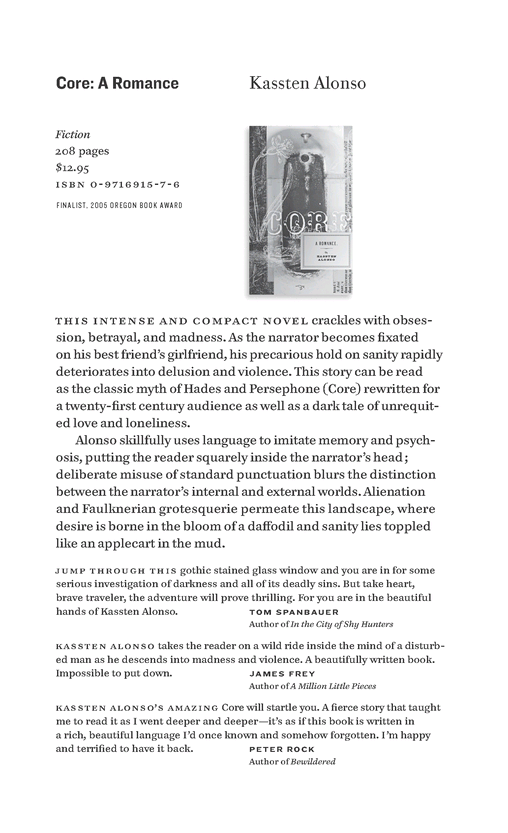
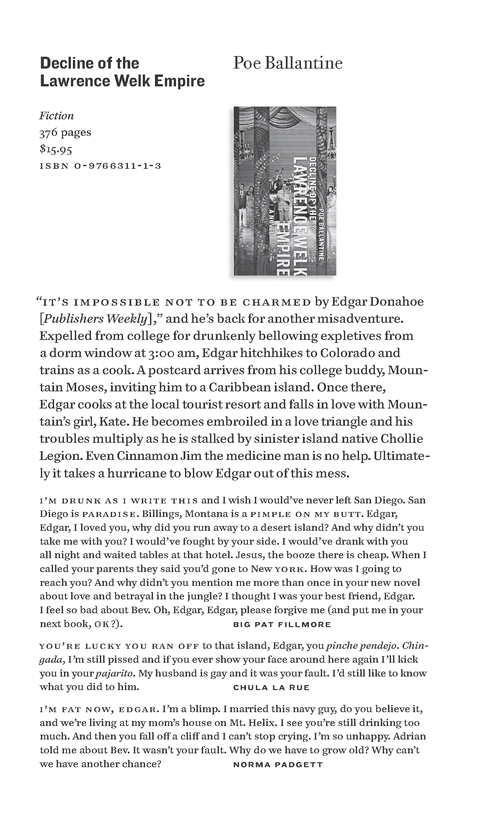
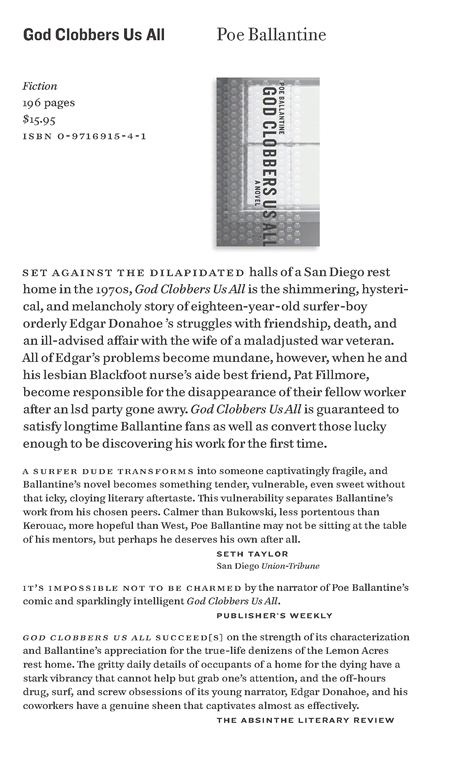
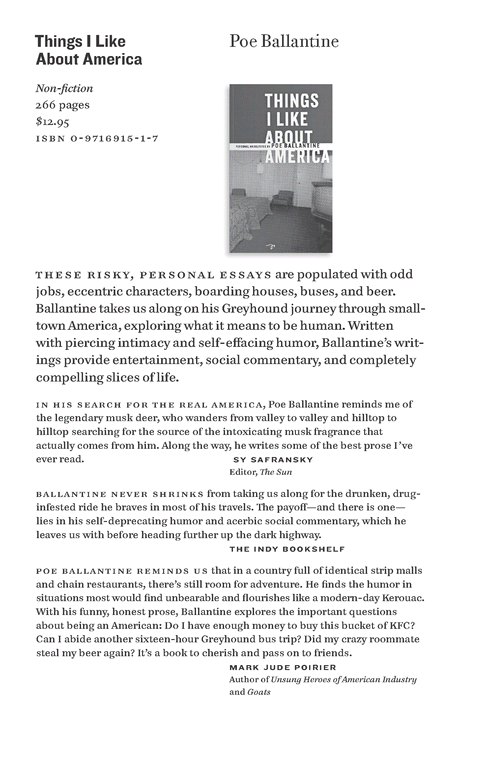
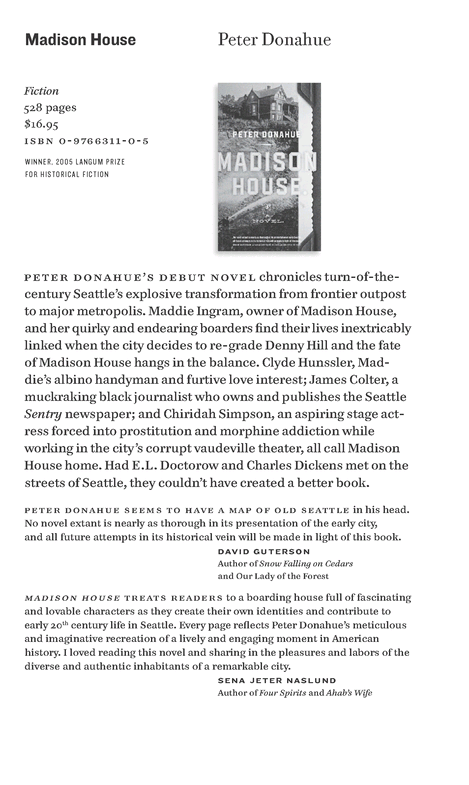
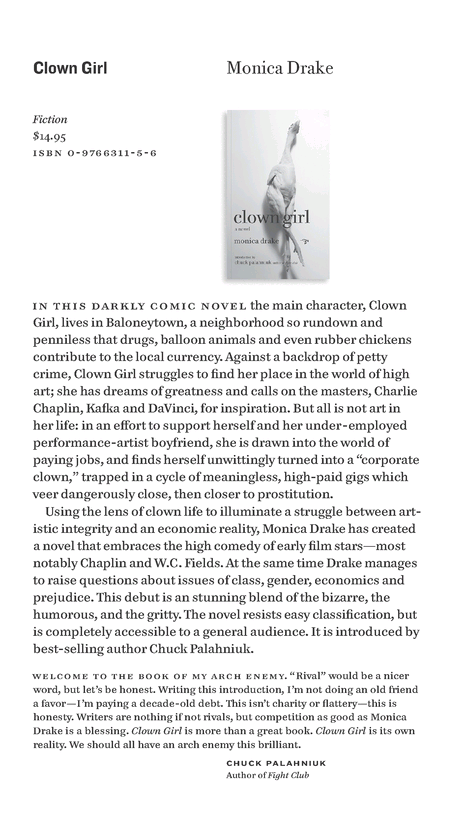
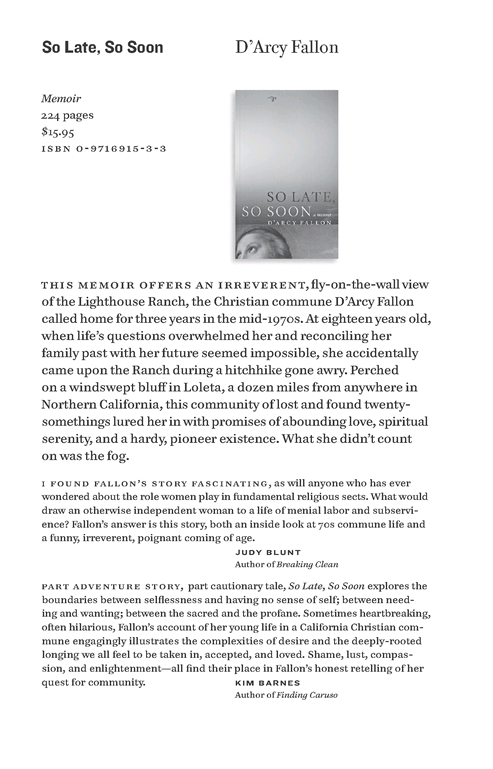
Other books
The Axeman of Storyville by Heath Lowrance
Small Medium at Large by Joanne Levy
When Love Calls by Celeste O. Norfleet
Positively Mine by Christine Duval
Urban Fantasy Collection - Vampires by Adrian Phoenix
Alpha by Rachel Vincent
Gonji: A Hungering of Wolves by T. C. Rypel
Catwalk by Melody Carlson
Silent Night: A Spenser Holiday Novel by Robert B. Parker
Wolf in Shadow-eARC by John Lambshead
